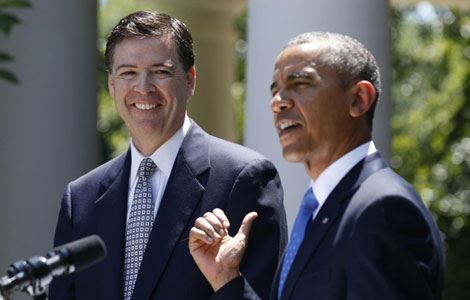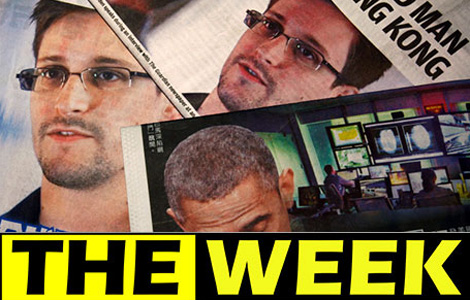US seeks Snowden's extradition from HK
Updated: 2013-06-23 16:25
(Agencies)
|
|||||||||
ESPIONAGE CHARGES
The United States charged Snowden with theft of government property, unauthorized communication of national defense information and willful communication of classified communications intelligence to an unauthorized person, according to the June 14 criminal complaint made public on Friday.
The latter two offenses fall under the U.S. Espionage Act and carry penalties of up to 10 years in prison.
Scores of Americans have been sent back home from Hong Kong to face trial under the extradition treaty. But the process can take years, lawyers say, and Snowden's case could be particularly complex.
America's use of the Espionage Act against Snowden has fueled debate among legal experts about whether that could complicate his extradition, since the treaty includes an exception for political offenses and Hong Kong courts may choose to shield him from prosecution.
Snowden says he leaked the details of the classified U.S. surveillance to expose abusive and illegal programs that trampled on citizens' privacy rights.
President Barack Obama and his intelligence chiefs have vigorously defended the programs, saying they are regulated by law and that Congress was notified. They say the programs have been used to thwart militant plots and do not target Americans' personal lives.
Stephen Vladeck, a professor at American University's Washington College of Law who studies national security issues, said there is no clear definition of what constitutes a political offense under the treaty.
"My intuition says it'll be easier for Snowden to argue espionage is a political offense than (the U.S. charge of) theft of government property," Vladeck said.
Should he return to the United States, Snowden would face trial in a federal court in Virginia that has a long track record of hearing cases related to national security and also to cyber crime.
In the past 20 years, the U.S. government has racked up remarkable success rates in winning convictions or guilty pleas from people brought before the federal court in Virginia who were accused of espionage or terrorism. Because of its speed, the court is considered a "rocket docket."
- Private jet ready to take Snowden to Iceland
- Snowden's future hangs in the balance
- Snowden approaches Iceland for asylum
- Snowden denies being Chinese spy: media
- Snowden hits back against critics of NSA leaks
- Snowden spying claims rejected
- China rejects spy claims against Snowden
- 'HK laws apply to Snowden case'
- HK to handle Snowden's case according to laws
Most Viewed
Editor's Picks

|

|

|

|

|

|
Today's Top News
Washington owes world explanations
Shenzhou X docks with Tiangong-1
Surveys show weak economic confidence
Plane crash kills 2 at US air show
3 Chinese tourists killed in Pakistan
Filipino Chinese shot dead in S Philippines
Soccer fans despair as coach dumped
Building collapse injures 4 in Texas university
US Weekly

|

|
















